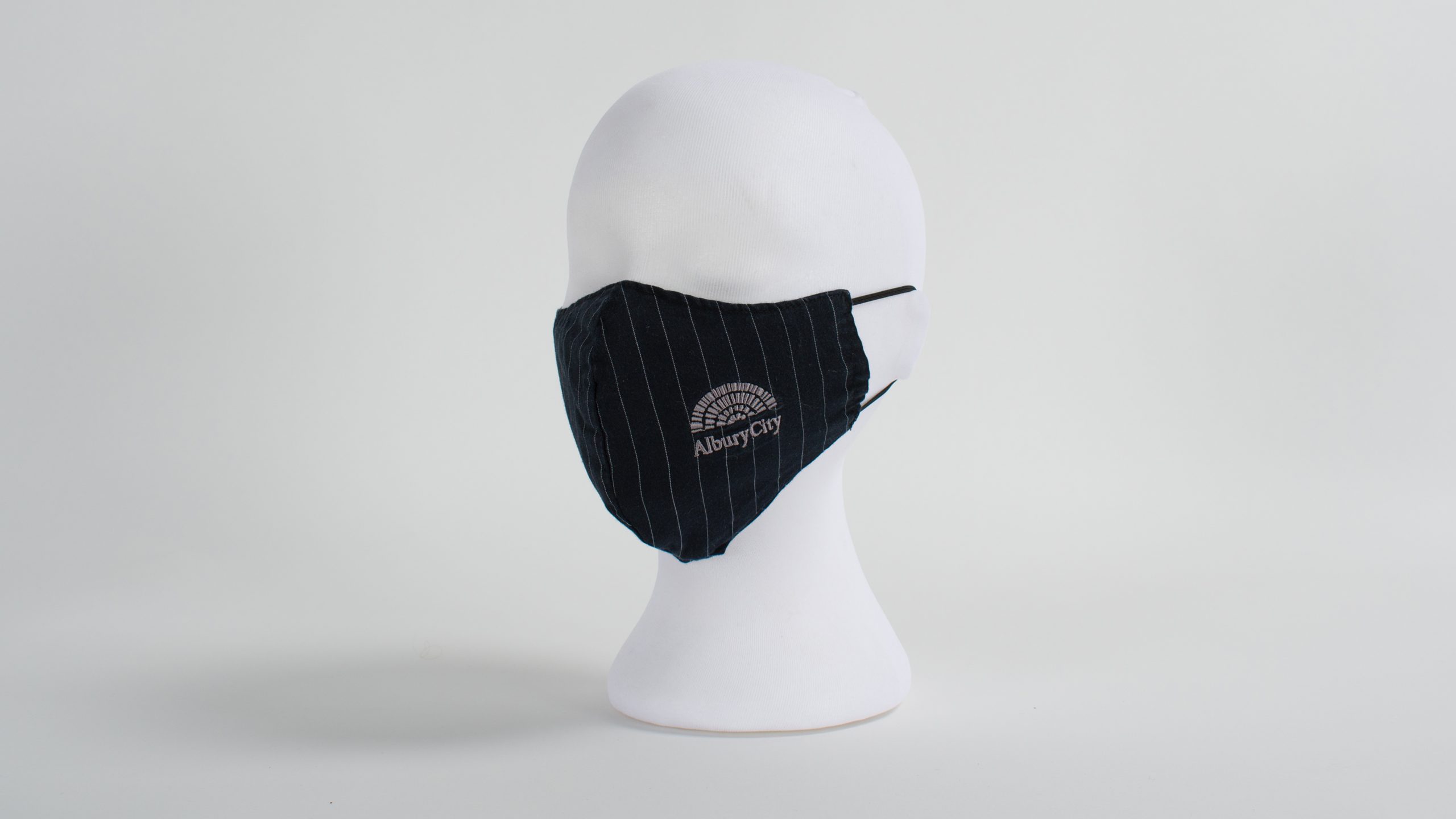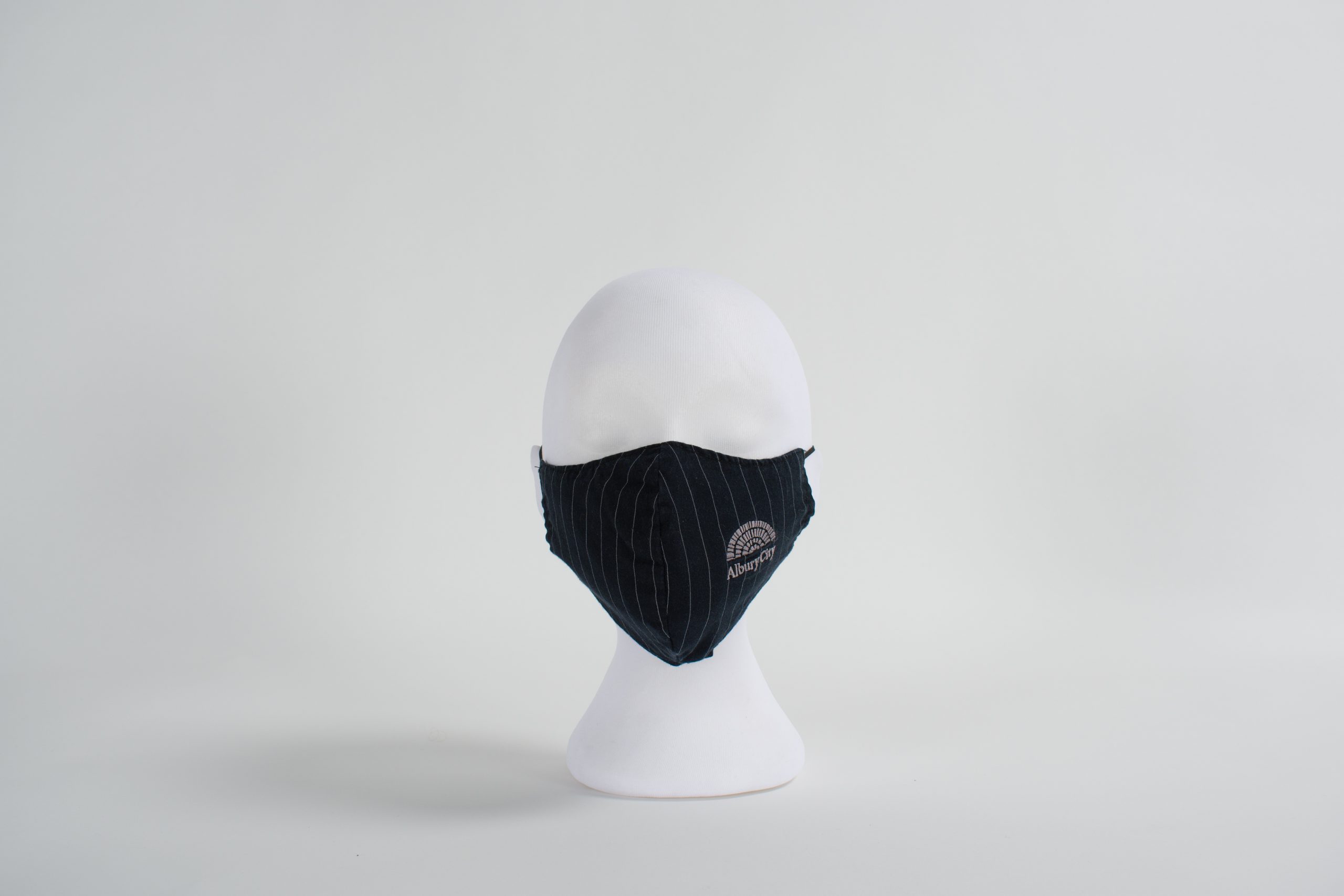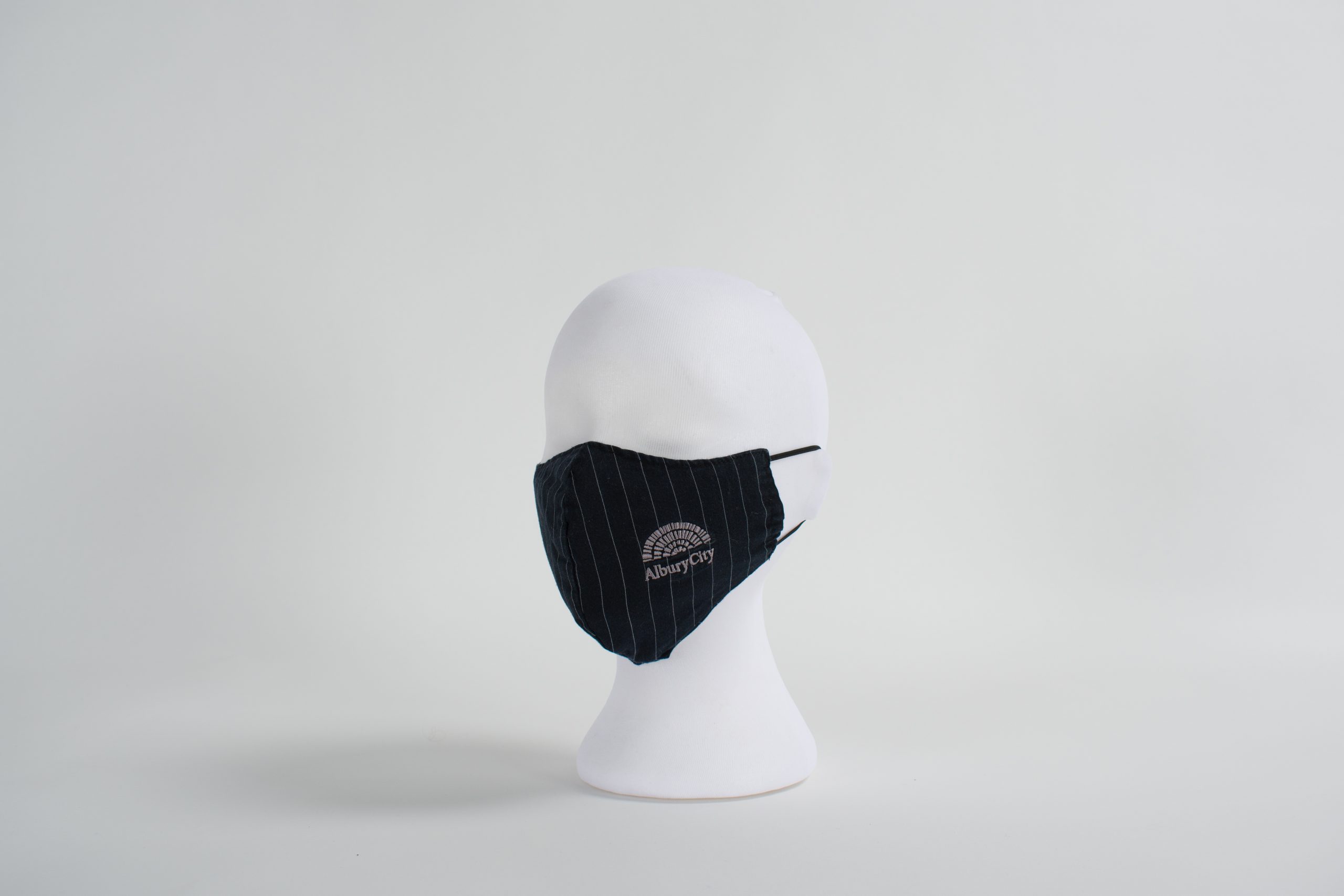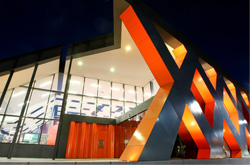More Than a Facemask
Covid-19 and Craftivism in the Border Town of Albury
It might look like a corporate branded face mask but it is actually homemade. Fashioned from an Albury City Council work shirt the mask pictured here was sewn by local resident Catherine Phelan.
Domestic arts and craft, such as this mask, is often dismissed as ‘women’s work’. The use of craft as a tool to give voice to social issues or to express an opinion about our society is a form of activism has been labelled ‘craftivism’. The term was first attributed to sociologist and crafter Betsy Greer in 2003 but it has a history going back over nearly 200 years of protest.
The pandemic created a global shortage of face masks. Unlike NSW, Victoria enforced wearing face masks for everyone when outdoors. In the border towns of Albury and Wodonga, the two cities are divided physically by the Murray River, which forms the state boundary between NSW and Victoria and legally.
During Covid-19, to cross the river to travel into NSW, or back into Victoria, required passing through a border checkpoint where proof of employment and travel purpose was scrutinised. As Catherine Phelan recalled, ‘it was such a strange time, so new, so different. Most of all I remember how cold those mornings were, sitting in the car waiting to go through a check point.’
For visual appeal the logo was placed on the left side of the mask. Incorporating the logo meant it could be easily seen when passing through the border checkpoints to indicate where the wearer worked.
A simple idea, responding to a global problem, executed with creativity and humour that is an excellent example of craftivism.






